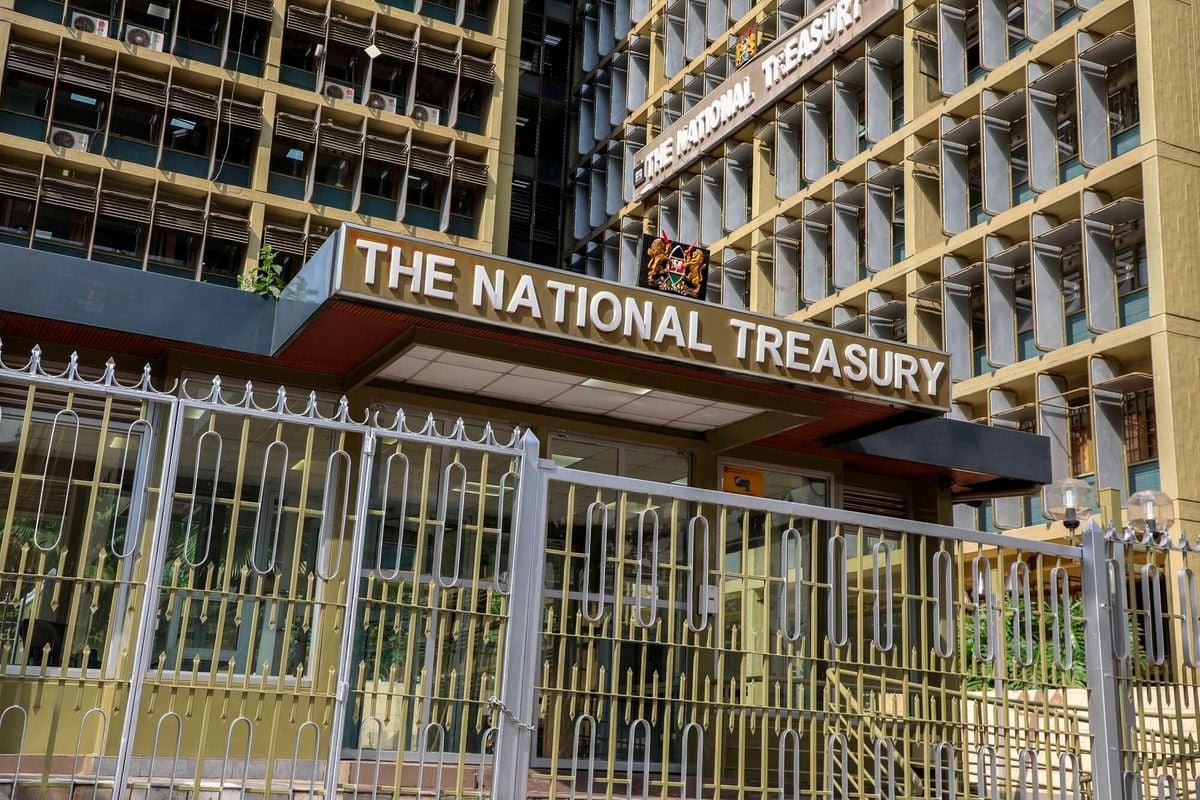The National Treasury is considering currency swaps and resuming its bond switch programme to manage the mounting public debt and ease repayment pressure amid faltering domestic revenue collections.
A currency swap is a financial agreement between two parties to exchange principal amounts and interest payments in different currencies over a specific period. A bond swap involves selling one debt instrument and using the proceeds to buy another one.
Raphael Owino, director-general of the Treasury’s Public Debt Management, said swaps offered a ‘best option’ in cushioning against rising debt repayment burden, fueled by a weakening shilling against major foreign currencies, particularly the US dollar.
“We have a range of other options for liability management apart from hedging, and perhaps swaps are the best option rather than hedging,” he said in an interview, adding that bond switches are under consideration in the current 2024/2025 fiscal year.
“Bond switch is something that we can do, remember there was one done in Kenya sometime back and so this financial year it is something we could consider, depending on high maturities,” Mr Owino said.
Kenya’s public debt stood at Sh10.56 trillion as of June 2024 comprising Sh5.41 trillion and Sh5.15 trillion worth of domestic and external debt respectively, according to Central Bank of Kenya (CBK) data.
This represents a 2.82 percent (Sh290 billion) growth from Sh10.27 trillion in June 2023. Its foreign debt is largely denominated in the US Dollar and the Euro at 67.9 percent and 21.4 percent respectively, implying that the depreciation of the local currency against these foreign currencies increases the debt repayment burden for the government.
The two currencies constitute 89.3 percent of Kenya’s external debt.
Central banks usually use foreign exchange swaps for hedging and asset-liability management, to affect domestic liquidity, manage their foreign exchange reserves, and stimulate domestic financial markets.
Mr Owino said that the government would also consider a bond switch in its debt liability management plan for the current (2024/2025) fiscal year, depending on high maturities.
The National Treasury avoided this option during the 2023/2024 fiscal year owing to rising interest rates on treasury bills and bonds as investors demanded compensation for lending to a government facing cash-flow constraints, coupled with investor preference for short-term debts to avoid duration risks.
The latest bond switch which the National Treasury implemented in December 2022, fell below expectations after the ordinary bondholders declined to convert all their Sh87.8 billion investments in Treasury bills into a long-term infrastructure bond.
National Treasury, through its fiscal agent CBK, had hoped to convert Sh87.8 billion worth of treasury bills and bonds that were maturing on December 5, 2022, into a new six-year Infrastructure bond with a plea for the eligible investors to switch their investments.
However, the government only received Sh52.9 billion bids of which it accepted Sh49.11 billion. During the week ended October 11, average interest rates on the 91-day Treasury bill, 182-day treasury bills, and 364-day Treasury bill stood at 14.99 percent,16.09 percent, and 16.33 percent respectively, according to CBK data.
This compares favourably to the average interest rates on the 91-day Treasury bill, 182-day treasury bills, and 364-day Treasury bill which stood at 15.68 percent, 16.5 percent, and 16.72 percent respectively during the week ended October 3.
The Kenya Shilling remained stable against major international and regional currencies during the week ending October 11, exchanging at Sh129.19 per US dollar similar the period ending October 3 when it traded at the same rate (Sh129.19) against the greenback.





